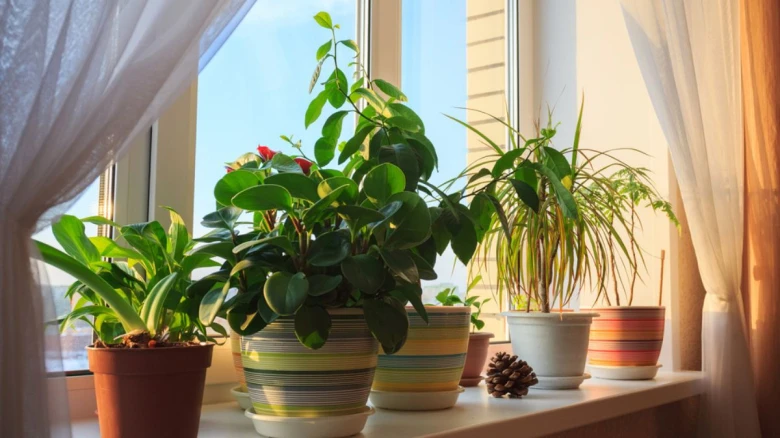International

Vastu tips for indoor plants: Here is a list of five plants that Vastu Shastra recommends avoiding indoors...
Digital Desk: In the quest to beautify our homes with lush greenery, many of us turn to indoor plants to add a touch of nature to our living spaces. However, according to Vastu Shastra, the ancient Indian science of architecture and design, not all plants are conducive to maintaining peace, prosperity, and harmony within our households. While some plants are revered for their auspicious properties and air-purifying abilities, others are believed to bring negative energy into our homes. Here is a list of five plants that Vastu Shastra recommends avoiding indoors.
1. Cactus Plants: Cacti, despite their unique and striking appearance, are said to foster arguments and chaos in the home, potentially harming romantic relationships. Vastu Shastra cautions that cacti can even contribute to financial difficulties. As per Vastu principles, it's advisable to keep cactus plants out of the living room, bedroom, and main entryway of your home.
2. Bonsai Plants: Bonsai trees, renowned for their artful aesthetics, are considered less than ideal for indoor spaces, according to Vastu Shastra. Keeping bonsais indoors is believed to hinder prosperity and impede the progress of inhabitants in the household.
3. Cotton Plants: While silky cotton plants are visually appealing, they are thought to bring bad luck when placed indoors. To maintain a positive energy flow, it's best to avoid having cotton plants inside your home.
4. Tamarind Plants: Vastu Shastra advises against planting tamarind trees in your garden, as they are said to attract negativity and disrupt the peace of mind of those living nearby. To maintain a harmonious atmosphere, it's best to keep tamarind plants away from your house.
5. Mehendi Plants: Despite their usefulness in beauty rituals, Myrtle or Mehendi plants are believed to harbor evil spirits. Their strong scent is thought to disturb one's state of calm, making them unsuitable for indoor spaces.
In addition to these five plants, Vastu Shastra suggests avoiding the storage of dead flowers indoors, as they can disrupt the energy flow in your surroundings and upset the energy balance in your home. Furthermore, certain flowers, such as carnations, should never be kept inside, as they are associated with bringing bad fortune. However, you can still enjoy carnations by planting them in your garden.
While Vastu Shastra provides guidance on creating harmonious living spaces, it's essential to remember that personal beliefs and preferences also play a significant role in choosing which plants to keep indoors. Balancing aesthetics with cultural and spiritual considerations is key when creating a welcoming and positive atmosphere in your home.
Leave A Comment